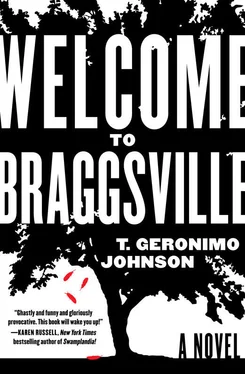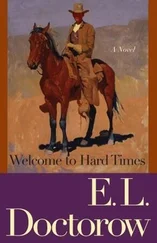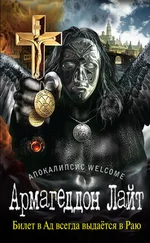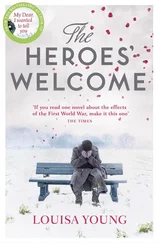We’re not dating. We’re just friends, Caitlin said.
Oh. The Colonel pointed at Kain, and then Lee, each time asking the same question by jabbing the air with his dirty fork. When Caitlin shook her head both times, he pointed to the three guys. Is you fellas… by any chance… not that I care.
No, they all said.
One of us, okay. The Colonel dug back into his plate, looking, even to Damon, a tiny bit relieved. To Damon, he explained, You could have won big if you bet us. We woulda wagered it, y’all seeming so compatible and all.
Where are you from again, Colonel? Caitlin asked.
L.A. Lower Alabama. Dothan to be particular.
Not far from Georgia?
Oh, no, young miss. Close. Very close. My nana was born there, in fact. She used to say, Drink enough beer and you could water their peaches, but for the fact that we were in a dry county.
Lee and Kain grunted politely.
Somehow Caitlin and Damon had become the spokespersons, even though Colonel Sanders knew a lot of Chinese in the army and none of them had accents either, and he served awhile under a negro, Called them colored back then. Wouldn’t no one mess with Spike. Spike Green. Cross him and get nailed. He let me get away with about all, had a soft spot for me — just between us. The Colonel again sounded his rusty pump.
When the Sanderses asked what coasters they rode that day, Caitlin muttered, All of them. Lee told them all, Plus a special back lot tour.
The Colonel turned back to Caitlin, A back lot tour? Where do you sign up for that?
It’s invitation only, Lee squeezed out between mouthfuls, now eating as if afraid he’d be at any moment banished from the stoop.
Secrets, huh? The Colonel stirred his Arnold Palmer as he walked to his wife’s side of the table. Got to have something to hold on to. Sometimes secrets is all you have. He grabbed his wife’s butt, and a few other things (Johnson 2015, p. 285).
Initial findings
Irony is a bastard. A special kind: mother unknown.
Final findings
Informant Caitlin uses persuasive rhetoric selectively — with minorities more than with mainstream contacts. She used it in Spanish with the Latino guards at the cemetery and the campus cop, but never with director Vandenberg or attendant Pearl (Medusa’s gatekeeper), who are native English speakers.
Informants Lee and Kain may not have wanted to seat themselves on the periphery, but by willingly doing so, they were complicit in their own segregation. Informants Lee and Kain exhibited “selective perception” (Griffin 2009, p. 259). In other words, informants Lee’s and Kain’s preexisting prejudices about Southerners prevented them from seeing the Sanderses as generous. Instead, informants Lee and Kain assumed the Sanderses were being charitable out of pity. Informants Lee and Kain also later expressed displeasure about the Sanderses’ questions about their athleticism and sexual orientation, even though no one ever asks short, dumpy, fat men if they play football, or horrible-looking people if they are gay.
The Sanderses might’ve exhibited selective perception when they asked if informants Damon and Caitlin were romantically involved, but their conclusions were based on easily observable facts. Informants Damon and Caitlin arrived at the Sanderses’ RV before informants Lee and Kain. And, while informants Lee and Kain sat on the periphery, informants Damon and Caitlin sat at the table. When the Sanderses asked if they were dating, informant Caitlin smiled at informant Damon, which could have been easily interpreted as confirmation.
At the time, informant Damon thought the smile was a connection, perhaps proof of the likelihood and desirability of a relationship between the two informants. Upon further investigation, this researcher concludes that Caitlin’s smile wasn’t a confirmation of affection. It was an indictment of the Sanderses, and a question: Who is us? Upon further research, this researcher has determined that US varies.
Informant Damon complained extensively about the greeting habits of the RVers. Upon further investigation, this researcher determined that informant Damon felt welcomed and that the series of waves he received and returned reassured him of his place and made him feel at home, which he did without considering that his friends might not feel the same. He hadn’t thought about how this was their first contact with the South, and how that made him an unwitting ambassador.
Informant Damon’s nana was correct. There are two worlds, though they are not as simply defined as above and below. This is not the Fritz Lang film Metropolis in which the world is divided into only two groups: (1) rich capitalist industrialists, and (2) the laboring class who live and work underground. Metropolis could be interpreted as a metaphor for how different people experience the world. The informants were all at the same literal barbecue, but their imaginary BBQs were all personal and idiosyncratic, and had little more in common than the streets projecting from a traffic circle.
A significant finding pertains to Certeau’s distinction between strategies and tactics. According to him, organized power structures use strategies, and the subjugated or disempowered use tactics. In other words, “governments make maps and pedestrians make shortcuts” (Davenport 2015). This debate is rendered moot at the communal well of fire affectionately referred to as “the grill.” They might use coal or lava rocks, pecan chips or gas and hickory, lighter fluid or matches or electronic ignition, they might cook chicken and salmon, ribs and burgers, tempeh and portabellas, they might serve beer, pop, whiskey, or rye, they might listen to Drake, Buffett, Sade, Bey, or Bee, regardless, everyone says in some manner, and always with a smile, Light the grill. If they do not say Light, they say Spark! or the technically minded say Ignite! or the nature enthusiasts say Kindle! In all times and places, the command to start the grill is a request for illumination (that will be shared?).
The final observation pertains [ sic ] the Indian informants’ tactical strategies, which are always indirect. Even Damon had only reacted, not acted. They never directly addressed the problem. Even on the ride home, their critique was indirect. All they said in the car was:
Damon, your boyfriend is hitting me; Damon, your boyfriend farted; Damon, your boyfriend’s feet stink. Damon, your girlfriend is hitting me; Damon, your girlfriend is driving her own car; Damon, your girlfriend is having her own thoughts. 4
During the ride home from Six Flags, while Louis and Charlie called Candice his girlfriend, Daron side-eyed her, on the lookout for a pull at the brow, a snort, a pop of the gum she so vigorously chomped. He saw no signs that she warmed to the idea, but saw none neither that she chilled at the thought. And when she gave him that peck on the cheek the morning she left Braggsville, her lips but a kiss away, so close he couldn’t see them, could only imagine them, hope raised high a flag. Yet, now, several weeks after the Incident, when they were once more able to talk — so to speak — on a regular basis, Candice and Daron’s secret phone calls only made him doubt that they’d ever be more than friends. The Chelseas and the Davenports were as similar as chimpanzees and humans; as NASCAR and NASA; as MIA (soldier) and M.I.A. (singer). (Can’t duck truth! The Devil is not in the details; the details are the Devil’s cock ring. Are not those details, those distinguishing features, those damned rigid particulars, precisely the attributes that enable the eternal dick slapping? Sincerely, Louis.) Yes, Daron winced listening to the Chelseas’ professorial tones and terse barks of laughter, the mother’s condescension always unholstered, winced as he had in that conversation with Mr. Buchanan when he was told more than asked about his own parents’ education. Mr. Buchanan. The Chelseas. Candice’s phone calls. Those conversations, can they be considered conversations when one person does all the talking?
Читать дальше
Конец ознакомительного отрывка
Купить книгу












